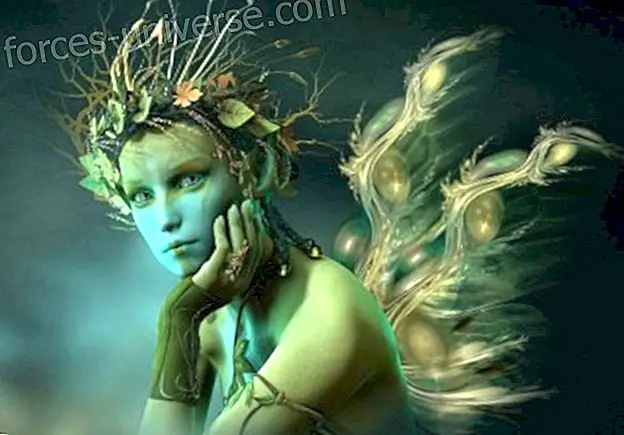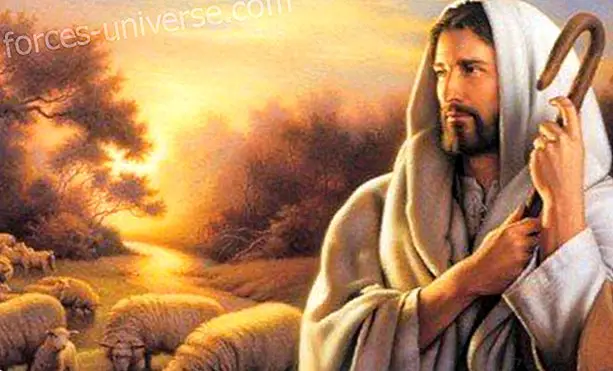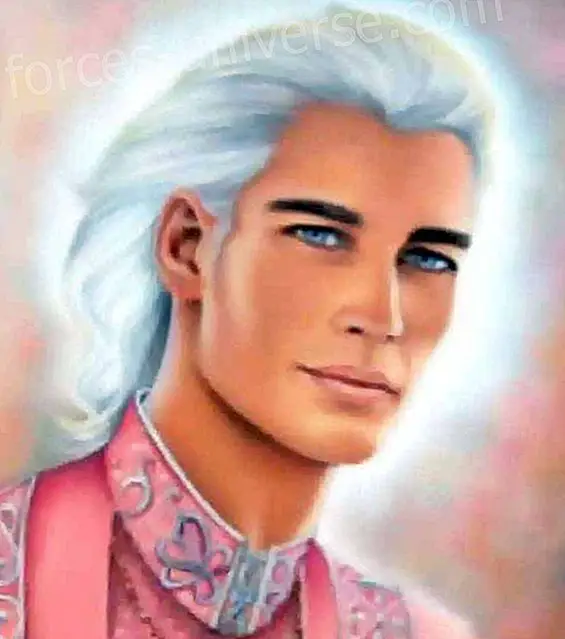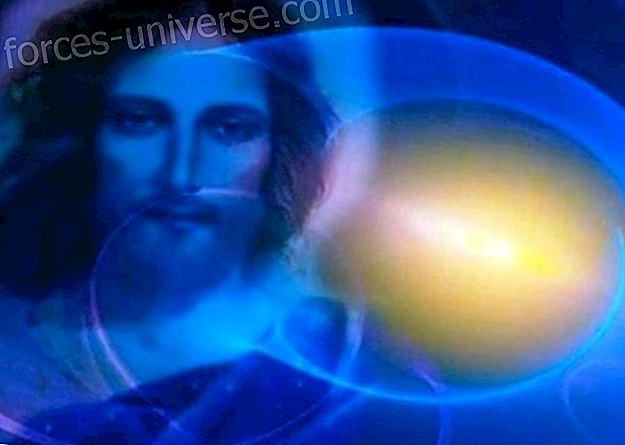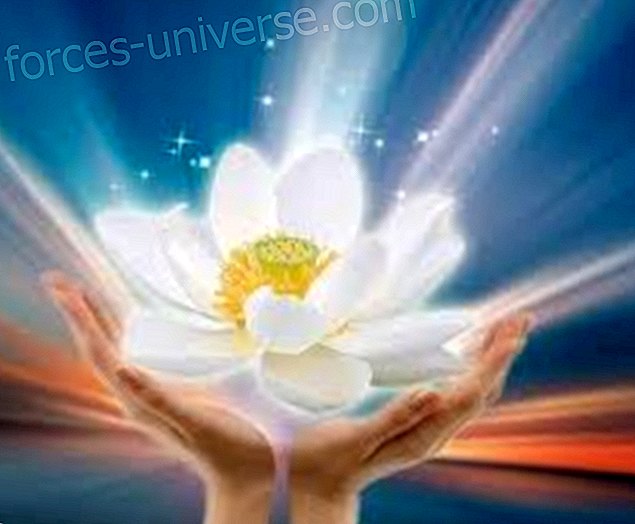
Extract adapted from the 2009 Integral Theory Conference in action by Craig Hamilton
I must confess that although this is an academic meeting. I am more a mystic than an academic and as a result my primary interest is in helping people to transform themselves into a deeper level of being. So the thoughts I will be presenting here now are not based on the academic dissection nuance of some aspect of Integral Theory, but on a mystical reading of the theory and my broad impressions of how certain elements of it are shaping the transformational culture of the integral community. So, if I have a wrong nuance I will leave considerable time at the end for the academics among you to correct me.
To start my reflection, I would like to ask you to think of a spiritual figure whom you revere or see as inspiration; perhaps a saint from the distant past, such as Jesus or the Buddha or St. Teresa or Rumi: probably a sage of recent history such as, Ramana Maharshi, Sri Aurobindo, Anandamayi Ma or Suzuki Roshi; or even a saint or sage of the present like Amma or the Dalai Lama or Thomas Keating.
What do you admire most in this figure? What causes you to see them as a source of spiritual inspiration?
Is this how you imagine it is inside? In other words, can you imagine that they feel very spiritual, peaceful, joyful and expanded inside? And what makes you admire them? Is the source of your respect and admiration based on your belief that they have access to glorious internal states of consciousness?
Or is it something of who they are? How do they show in the world? About your wisdom and generosity expressed with your actions? About the strength and uniqueness of his character? Their unwavering posture of holiness that they have discovered? Is it about divinity that they seem to instill in your personality and shine through each expression?
I am assuming that unless you are in a more altered state than in the drug addict state in which I used to be, your answer is in the domain of the latter. I think, it is good to say that when one concludes that someone is a sage or saint or even a deeply spiritual person, what most of us mean by that their humanity has led to a transformation that on a fundamental level, their values have changed., their identity or sense of being has been adjusted in a way that profoundly alters who they are and the way they behave.
I don't think there is anything new in what I expose here. I think this is what we should call spiritual common sense. It sounds with our most basic spiritual intuitions and sensibilities.
But in the contemporary spiritual market - including the Integral World of Theory and Practice - there is currently much confusion at this point. In the contemporary spiritual scenario throughout, we find prominent spiritual figures suggesting that enlightenment has nothing to do with your behavior, which is merely internal realization, that does not affect the personality at all. Or that if it affects our behavior, it will simply make us calmer and more equanimous (perhaps as a lifetime dose of Prozac). But it certainly has nothing to do with morals. And these are just a few examples of the various spiritual ideas that match what I am calling spiritual common sense.
For the purposes of my talk here, I will put aside these broad comments of confusion and focus on those that specifically arise from the Theory.
As I am sure, you all know well, one of the basic principles of Integral Theory is the concept of Development Lines. The basic idea is that human evolution or development is not a thing. You cannot ask: At what stage of development is Craig? and expect to have a general response that means nothing, because we are more developed in some areas than in others. I can be a great abstract thinker but have underdeveloped social skills. Or I can be a world class athlete who can't even read or write.
As in most of the basic principles of Integral Theory, this also carries common sense. In fact, initially, it seems really so obvious and undeniable that one could even wonder how he turned it into one of the world's theoretical models. Are you really talking about what grandmothers knew that we all have different strengths and weaknesses, everyone has a pound of virtue, etc.? It is even in sync with some of the basic cultural stereotypes_ like the silly joke, or the genius teacher who can't tie his tie, the super intellectual man who is completely removed from his feelings. We all take for granted its hindered development, so when we meet someone who seems good at everything, it is always impressive - or irritating.
Since it is not something new or particular or internal, there must be something of this theory that has stored a lot of attention - even forcing integral theorists to catalog several dozen different lines of development.
So why is the concept of Development Lines obviously obvious as an absorbing and integral part of the Integral Theory?
I think what has given this theory a lot of adherence is that it seems to make common sense with one of the most annoying aspects of our experience in relation to the question of me. s high human development.
To illustrate, I want to do a survey: How many of us have felt the pang and confusion of knowing that a great musician or artist whose music or art seems to express something almost transcendent was abusive in your personal relationships or a desperate drug addict?
And more, at this point in the talk, how many of us have felt deeply confused, angry or even disillusioned to discover that a great spiritual Master, apparently enlightened that we admired, was abusive, financially corrupt or a sexual deviant who minded openly to cover the fact that they were sleeping with a harem of attractive disciples behind his wife's backs (or while claiming to be free-take your choice)? (And by the way, that example was not to point to someone in specific - it is a story that has been told so many times, that we could give thousands of examples).
You see, what I think has made the theory of Development Lines so absorbing for us, that the post-modern spiritual seekers who seem to have the answer to the question have plagued us at the base of our being and threatened to minimize our faith in the possibility of genuine advanced development. That question, as my dear friend Ken Wilber likes to put it, is why are most spiritual teachers stupid ?
Thus, much of the narrative goal of the past 40 years of Western spirituality reads like a tragic soap opera. We have seen one of the most promising spiritual masters fall publicly from grace, committing serious moral transgressions, collapsing in corruption and scandal. And this has been an extremely challenging reality for millions of contemporary spiritual seekers.
 Many have wondered if lighting is really a complication. Or if authentic spiritual achievement is even possible. To compound the problem, many half-spiritual teachers have capitalized on this doubt, bringing to light their "human imperfections" as demonstrations of their humility and "spiritual maturity." And in doing so, they have continued to undermine our sense of what is really possible.
Many have wondered if lighting is really a complication. Or if authentic spiritual achievement is even possible. To compound the problem, many half-spiritual teachers have capitalized on this doubt, bringing to light their "human imperfections" as demonstrations of their humility and "spiritual maturity." And in doing so, they have continued to undermine our sense of what is really possible.
Then, in this sea of confusion this concept of Development Lines walks - a clean, simple, common sense theory that seems to elegantly explain the whole problem. It does not say that the reason that these great Masters have acted inappropriately was not due to any deficit in their spiritual achievements. They were even Great Masters. They just weren't developed in some other lines. For example, if a Great spiritual master acts in ways that are abusive, we must see this is not a spiritual deficit such as a deficit in their moral line of development or their interpersonal line of development, or perhaps in their emotional line of development. If a spiritual master cannot keep his pants on, this is probably because he lacks some kind of psychosexual development and is not necessarily indicative of a limitation in his spiritual achievement.
In the first instance, it seems that everything is saved, right? We don't have to throw it all away after all The possibility of the Great Illumination jun exists We must only understand that it is a line among many We can still believe and aspire to advanced spiritual development We must only realize that no matter how spiritually evolved we are, it won't necessarily make us better human beings
Now I must be honest. For all its elegance and simplicity, this theory never really worked for me and not just because it saves all gurus. Sorry to step aside, but what I mean, what a relief right? We must no longer strive to appear super human so that we meet the expectations of our disciples; and even more important we don't have to remain in a high state. Ah, if they catch us with the pants down or with a jar of cookies, we can simply know the lack of development in some of the non-spiritual lines - such as morality - and we are safe! And you know what it means, more of those beneficial advantages!
But seriously, putting aside the spiritual teachers, the deepest reason why the Spiritual Development Lines never worked for me in the spiritual realm is this: If all spiritual practice and effort does not make us more conscious, sensitive Decent, careful, wise, respectful and the moral of human behavior whose behavior in the world shines like a bacon of enlightened consciousness-then A) How good is it? and B) if our definition of spirituality does not include any of those things, what exactly do we try to say with spirituality at this point? If we are going to separate all these lines, it seems that the only thing that really remains is our ability to access altered states of consciousness. And, for me, that is a very small definition for the domain that attempts to define.
To explain why, I want to take us back where I started the talk. For the spiritual luminaire - dead or alive - whom you will see as inspiration. What do they have that inspire your admiration and respect? Is it your ability to access higher states? Or is it something else? And if it's something else, what's that more?
If I could put a word, I would call it "enlightened humanity." I think that if we walk outside everything that is said about different lines of development, we can know that there is something called our humanity that has to do with the depth of our interiors, our moral sense, our character, our values, our wisdom, our decency, our compassion, our willingness to risk more. And I think we all have a basic common sense of infusion that spirituality is about the enlightenment and transformation of our humanity into a fundamental level state. What makes a truly spiritual person so extraordinary and unusual is that all the best qualities and virtues seem to shine naturally in that person, while the human qualities and vices seem to decline, and the more a person becomes enlightened, the more it shows. And I think we know it deep within us, even if our theories have managed to confuse us on the surface.
You see, I think this concept of Development Lines applied to spirituality is a great example of an elegant theory talking about our common sense. I believe that the reason why it has been so successful lies in a series of fundamental confusion in contemporary spirituality. And since there is no time to discuss it entirely here, there is one that is important to mention, since it has been one of those that the Integral Theorists have helped propagate.
It is a confusion about what non-duality - and non-dual realization - really means. The vast majority of the teachings and teachers of "non-duality" - including some integral theorists - have propagated the idea that the realization or dual is when you discover that only the Absolute or Unmanifested is the only Real, and the manifested or unreal domain, an illusion, a cosmic joke or divine game with no meaning. We have heard so far the idea that satori is the realization, that everything leads to satori - including the concept of evolution - has no meaning. And that, after enlightenment we could still play in the world, but we wouldn't take it seriously.
So with this as our true idea of where our path leads, it is easy to understand how someone with a higher or more advanced level of development might not be very developed in their humanity. Because that version of lighting really has nothing to do with the "relative" world of space, time and action; then seeing the supreme spiritual achievement, the idea that spirituality is a unique line divorced from the others I have been talking about makes perfect sense.
There is only one problem, which is not what non-duality really means but what lighting really is.
Remember, the supreme state of non-duality is in the form and emptiness, nirvana and will knead are one. Which means that everything is REAL.
 That is why the authentic understanding of enlightenment is simultaneously joyful and painful. Because one sees, in a way that one has never seen before, that the manifested basis of everything is an unlimited perfection, but that the manifested world is a disorder. And both are equally real.
That is why the authentic understanding of enlightenment is simultaneously joyful and painful. Because one sees, in a way that one has never seen before, that the manifested basis of everything is an unlimited perfection, but that the manifested world is a disorder. And both are equally real.
And in the face of this beautiful and terrible reality, there is a recognition beyond - IT DOES NOT HAVE TO BE SO - Much of the disorder of the human condition lies in a fundamental ignorance of how things are. Much of the horror shown to the world as a result of our collective consciousness - not evolved. And it can change.
So, when someone really notices this, they usually become fans. They have only one option left. Give each breath upon awakening and the evolution of the world.
Now, it is possible to experience all kinds of advanced and inner states and not get this genuine understanding of non-duality, because many of the spiritual teachers and teachings are as confusing as they are useful; Because frankly, it is very rare for someone to detail, allowing themselves to surrender to this supreme understanding. Most spiritual teachers have not really even been close. So, we usually get a Dharma coctail mixed with a bunch of wrong conclusions. As enlightenment is simply being here and now or loving what it is, realizing that there is nowhere to go, nothing to transform, nothing needs to change.
And many other half truths that are absolutely soothing to the spiritual impulse.
Now, to summarize where we are at this point, I have mentioned that saying that spiritual development is separated from the line that excludes moral, social and psychological development is problematic, because it reduces spirituality to the ability to access altered states. I have also said that this way of defining spirituality comes into the face of our basic common sense intuition that spirituality is about the enlightenment and transformation of our humanity. And then I said that the reason why many of us have been talking about our common sense lies in a lot of confusing ideas being taught in a contemporary spiritual scene, and specific Physically, the idea that the understanding of non-duality means that we see the world as unreal or even better as a cosmic joke.
On my own, there are two more questions I need to ask to take home.
1) If spirituality is not just a line of development, then what is it?
2) If this theory of Development Lines does not explain the moral and social transgressions of so many Great Gurures, then what counts in it?
In response to the first of these, there are many ways to talk about what spiritual awakening is, but a good way that will emit some light here is to see it as the discovery of the Dharma. When someone really wakes up, one begins to see with the eye of the Dharma, the eye of wisdom. Now, the word Dharma has been thrown a lot these days, if we look back at its roots, we find three meanings that you tend to associate with it. Drama is true, Drama is law and Drama is Way. Simply put, One sees the Truth, which reveals the Law that will guide the Way and when things are working properly, this is a discovery that intertwines every aspect of our humanity. One suddenly sees with unimaginable subtlety the delicate network of interrelationships that bind us. One sees the meaning of each movement we make and how it impacts the whole through a complex chain of cause. One awakens to the law of Karma, the law of correct action that reveals the inherent principle of order the Cosmos and a cosmic order to align with that order. In theistic traditions, this Law is referred to as The Will of God, as Not my will, but this will be done. Finally, one discovers the path, the actions that one must take must remain aligned with the Law, revealing itself again through clear observation at all times. And, in the face of this knowledge, one experiences the awakening of what Andrew Cohen calls The spiritual conscience or what the Sufies simply called The Heart n . That power in the psyche of awakening that compels us to act in accordance with the Law and which feels like a cosmic pain when we violate it.
What is the impact of an individual who performs this type of depth? It is from Earth home. The result is a complete revolution in the nucleus of a being, which radiates outward, bringing transformation integrated into every aspect of our humanity.
At the level of values, it brings a radical reorientation in our priorities, world view and values. We begin to worry about the evolution of everything and the evolution of consciousness on its own more than we are concerned about something personal. We become Cosmocentric or even God individually central.
On a moral level, it carries a deep alignment with the moral of the order of the Cosmos, always leading us to selfless sacrifice for the sake of the whole.
At the interpersonal level, it guides a deep attenuation of the evolutionary need of others, and an unbearable sensitivity to the impact our actions have on others. Freed from the confines of self-concern, we find ourselves willing to see deeply in other souls responding with precision, tranquility and kindness with an ordinary egoic relationship.
 On a cognitive level, it frees our mind from rigidity and opens us to even higher levels of spiritual knowledge where authentic intuition or reason are clear and united in a higher tie.
On a cognitive level, it frees our mind from rigidity and opens us to even higher levels of spiritual knowledge where authentic intuition or reason are clear and united in a higher tie.
On an emotional level, it awakens a deep feeling that would have been much to support in our previous state of identified ego. We become selective in the present to our emotional life, and the emotional life is extended to literally begin to feel the evolution of the whole. When we see ourselves or someone else acting selfishly and out of alignment with the Law, it causes us emotional pain and that pain deepens our evolutionary response to life.
In essence, what I am affirming is that spiritual achievement is integral at the deepest level of the psyche. Integrate our whole being from head to toe. Lighting is rarely everything. It's just that it's extremely rare.
Which brings me to a final question: If true spiritual achievement really makes us better people, because then, do we have so many spiritual teachers who are less of the example of human beings?
If you have understood me so far, you will probably be able to guess my answer: Many of the spiritual teachers today have not achieved the profound realization that I am talking about here. They may have had profound experiences, they may even have had some type of yogic access to expand the states of consciousness, they may even have transmitted those advanced states to others, but that does not mean that they have given up their will before the throne of the Supreme. It does not really make them human with Divinity-conscious.
Why are we in this predicament? Why, after all these years of Western search and practice, do we have nothing more to show about it?
That is another great issue, and much of what I can give justice here. But in great terms, here is my circulation.
Really, I think it's very simple. I think that pre-modern spiritual practices and traditions are not enough to mention the complexity of the postmodern world or postmodern psyche. Those of us postmodern who are engaged in a spiritual practice today are at a completely different level of development than any of the traditions we have known. We have a type of complexity sustained in individualism and interiority that were not known before. Our interior complexes are deeply related and committed to the interior of others in ways that the great sages of antiquity would never have imagined. Great wise traditions are of course great. And his greatest universal wisdom is timeless. But they don't describe us enough.
In recent years, many have recognized the limitations of pre-modern spirituality and have offered several hybrids of Western psychology and contemplative traditional practice, but from my observation, this has mostly contributed to making the context of spiritual practice smaller, anchoring it to healing, recovery and the realization of traumatized personal being. Outside of these marriages, there has also been a variety of what we could call the born post-modern spiritual practices, but again, they all seem to be focused on the healing and realization of being and have little or nothing to do with anchoring ourselves to the context infinitely. bigger than us. Spirituality has always been aligning and proposing us to an Absolute principle, in which our wounds, fears and personal desires are revealed as irrelevant, in the absence of this last context, we must ask: Are we really practicing spirituality?
What I think will happen in a new era of authentic spiritual enlightenment - and in my opinion, the only thing that will do it - will be the appearance of new post-post spiritual moderates that are fundamentally God-centric and Cosmo-centric. These new teachings will point out the complex relationship between the sensitivity and individuality of the postmodern psyche, but from an enlightened and authentic Darmic context. This means that they will derive from the Dharma clearly seeing the Way, with a capital “w”, and hence a commitment to the complexities of the postmodern psyche. New transformative practices will be born that will be able to our new inner foundation in the dismantling of its egoistic structures. And the path will become increasingly collective, in the appreciation that consciousness is relational and that a deep commitment to the evolution of our interiors is necessary to maintain a genuine development of our individual interior.
There are a few teachings emerging. I was part of one of those experiments for about a decade and half of the results were extraordinary. And now, with the launch of Integral Enlightenment.com, we will be putting a new method to this great adventure of being pioneers in a path of authentic spiritual evolution. We invite you to join us.
TRANSLATION BY KARLA
SOURCE:

